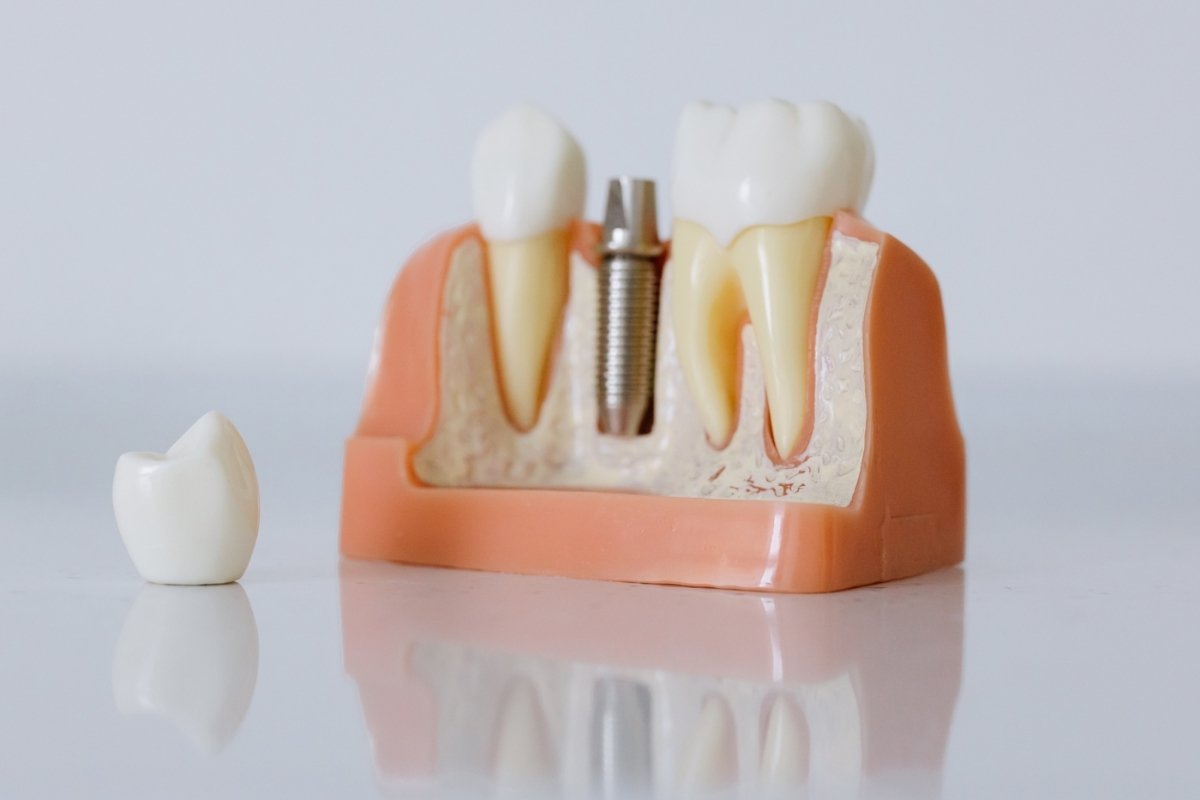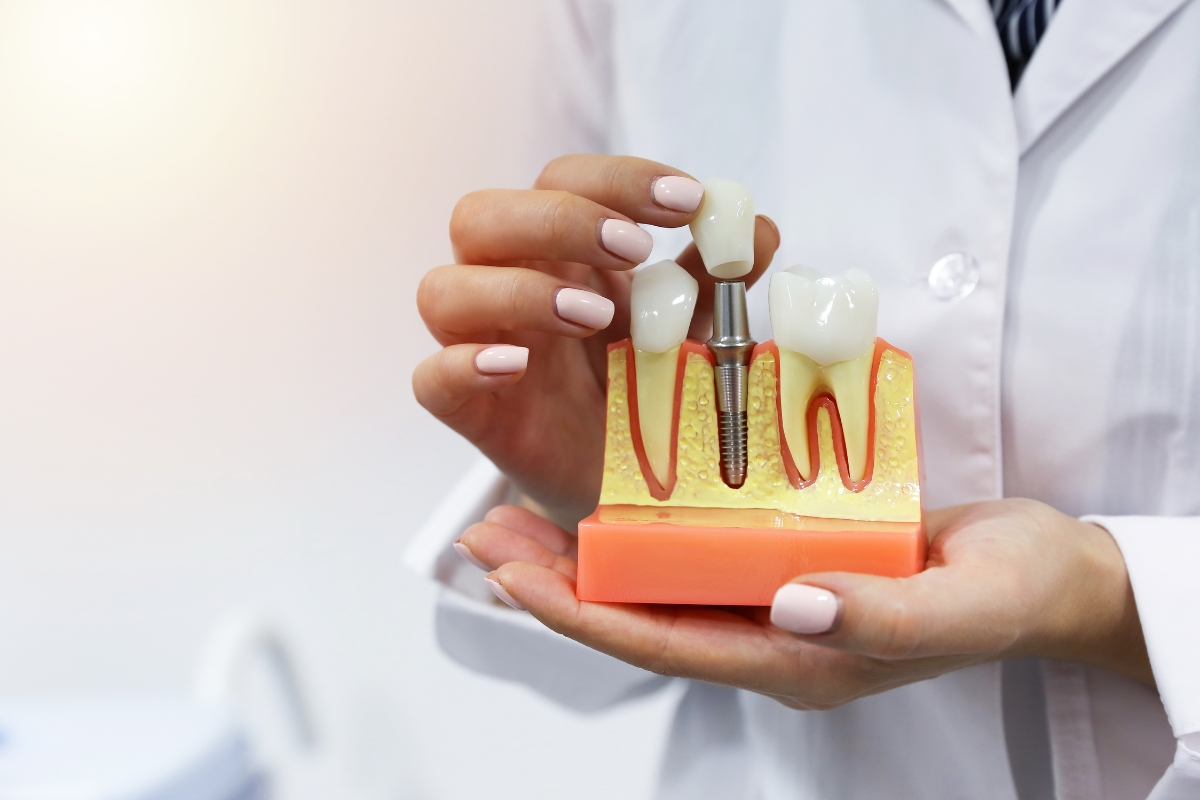
Dental implants are one of the most reliable ways to restore missing teeth. They look natural, feel comfortable, and help prevent bone loss in the jaw. However, the healing process and long-term success depend heavily on how you care for them after the procedure. While many people think the hard part ends with the surgery, that’s far from the truth. What you do—or don’t do—after getting implants can make a big difference.
Let’s take a closer look at the top five mistakes people often make after getting dental implants and how you can avoid them.
Ignoring Post-Surgery Care Instructions
- One of the biggest mistakes is not following the care routine provided by your dentist.
- These instructions are there for a reason—they help your mouth heal faster and reduce the risk of infection.
- Skipping medications or not using the prescribed mouthwash can lead to complications.
If you eat solid foods too early or brush too hard, you could disturb the healing area. For the first few days, soft foods are your best option. Avoid hot drinks and smoking during this time, too.
Make sure to:
- Take all medications as prescribed.
- Rinse gently with salt water if advised.
- Rest and avoid heavy activity for at least 48 hours.
- Stick to a soft food diet during the first week.
By staying consistent with your aftercare, you’ll give your dental implants in Walnut Creek a better chance to heal properly and last longer.
Not Maintaining Proper Oral Hygiene
- Some people assume implants don’t need the same care as natural teeth. That’s a dangerous assumption.
- Plaque can still build up around the gums and implant site, leading to gum disease.
Even though implants can’t get cavities, your gums and surrounding bone can still become infected. Peri-implantitis is a real risk. It’s similar to gum disease but affects the tissues around an implant.
To avoid this:
- Brush your teeth twice a day with a soft-bristled brush.
- Floss daily using tools made for implants or bridges.
- Use a low-abrasive toothpaste.
- Visit your dental professional regularly for cleanings.
Staying consistent with your hygiene habits will not only protect your implant but also your overall oral health.
Smoking After the Procedure
- Smoking is one of the worst things you can do after getting implants.
- It slows down healing, affects blood flow, and increases the chance of failure.
Nicotine reduces oxygen in the blood, which your gums need to heal properly. The chemicals in tobacco can also irritate the surgical site and delay tissue regeneration. Many people are not aware that smoking can double the failure rate of dental implants.
If quitting entirely feels like a big step, try to at least avoid smoking during the critical first few weeks. That’s when your implant is trying to fuse with the jawbone—a process called osseointegration.
Better yet:
- Stop smoking before the procedure.
- Avoid all tobacco products for at least two months after surgery.
- Talk to your provider about support for quitting if needed.
Every day you go without smoking increases your implant’s chances of lasting a lifetime.
Eating the Wrong Foods Too Soon
- Many people return to their regular diet far too quickly.
- Crunchy, hard, or sticky foods can damage the implant and disturb healing.
Chewing tough foods can put pressure on the surgical area and even lead to implant movement. This might not be painful at first, but it can cause long-term problems. Some foods to avoid include popcorn, nuts, chips, and hard bread.
Stick to foods like:
- Yogurt
- Mashed potatoes
- Smoothies
- Scrambled eggs
- Soft fruits
As your mouth heals, you can slowly reintroduce firmer foods. However, always chew away from the implant site until fully healed. Listening to your body during this stage can help you avoid unnecessary setbacks.
Skipping Follow-Up Appointments
- Once the implant is placed, regular follow-up visits are crucial.
- Many people skip them because they feel fine, but problems can develop silently.
Follow-up appointments allow your provider to check for signs of infection, implant movement, or gum issues. Even if everything looks and feels okay, an exam might reveal something you can’t see or feel.
During these visits, your provider will:
- Check if the implant is integrating with the bone.
- Monitor gum health.
- Clean around the area if needed.
- Give advice on how to improve care at home.
Missing these check-ups could mean missing early signs of trouble. That’s why it’s always better to stay proactive.
Dental implants are a long-term investment in your smile, health, and confidence. But the responsibility doesn’t stop after the surgery. Each of these five mistakes can affect your results, sometimes in ways that aren’t immediately noticeable.
By following your post-op instructions, keeping your mouth clean, avoiding harmful habits, watching what you eat, and showing up for your follow-ups, you give your implants the best shot at lasting success.
Taking care of them isn’t just about protecting the implant itself. It’s also about protecting your overall oral health and preventing future issues. Every small habit adds up. Make the right choices early, and your smile will thank you for years to come.



